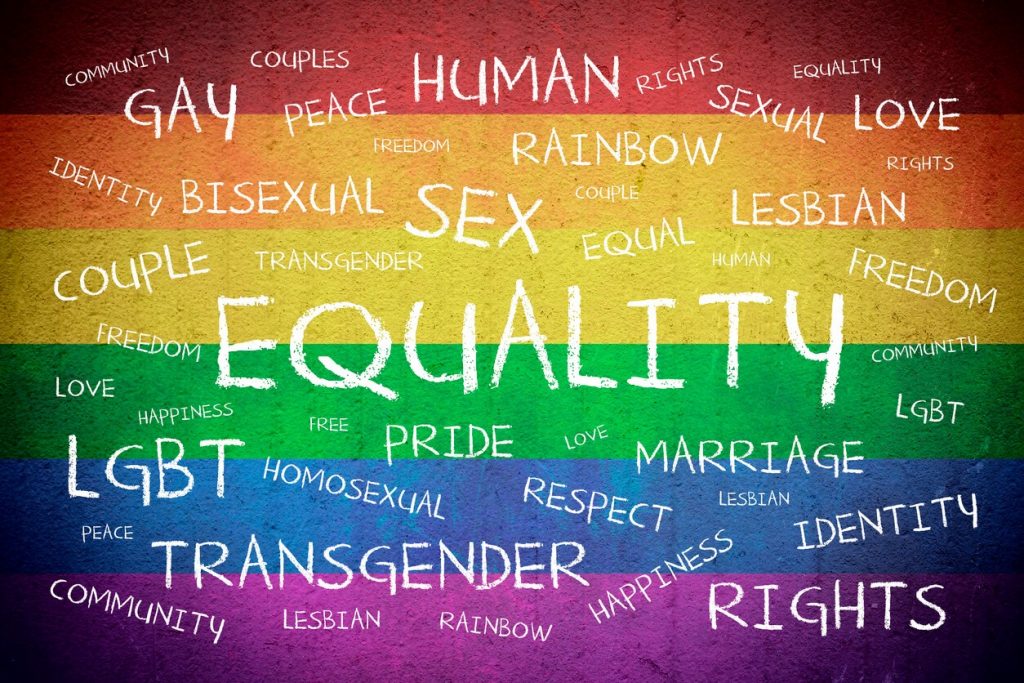June is Pride Month, which celebrates LGBTQ communities and also serves as a reminder of the important work still to be done to ensure equal rights for LGBTQ individuals. Encouraging progress is underway, as shown by anti-discrimination laws passed by states, counties, and cities. But the promise of equality in the workplace for LGBTQ people remains unfulfilled in too many places, including federal employment laws.
The lack of adequate employment protections for the LGBTQ community is highlighted amidst the ongoing economic and labor market turmoil stemming from Covid-19, and studies show that LGBTQ people are more likely to be unemployed. NBC News reports that data based on 4,000 participants polled from April 16 to May 6, “found that 17 percent of LGBTQ people had lost their jobs because of COVID-19, compared to 13 percent of the general population. LGBTQ people of color were disproportionately affected: Twenty-two percent of them reported losing their job because of the pandemic, compared to 14 percent of white LGBTQ people surveyed.”
State Laws Often Provide Better Protection Than Federal Law
On the state and local level, some new laws are making important strides toward protecting LGBTQ employees. Over 20 states and territories have enacted laws that explicitly prevent employment discrimination against LGBTQ people. For example, the Virginia Values Act provides ground-breaking safeguards for LGBTQ employees who face discrimination at work. The new law, which goes into effect on July 1, 2020, makes Virginia the first Southern state to provide robust anti-discrimination legislation for LGBTQ workers. The Values Act makes it unlawful for employers to discriminate against LGBTQ employees due to their sexual orientation and/or gender identity.
The Values Act also expands the number of employers covered and allows LGBTQ employees to file a lawsuit in court to challenge discriminatory practices beyond termination, including failure to hire, unequal pay, and other employment actions. Unlike certain anti-discrimination laws that have a higher burden of proof, the Values Act provides that a LGBTQ employee may win their case if they show that their sexual orientation or gender identity was simply a “motivating factor” in the employer’s decision. Likewise, the Values Act offers enhanced remedies and damages for victims of LGBTQ discrimination compared to what had previously been available.
As a result, LGBTQ employees in Virginia enjoy stronger anti-discrimination protections than is afforded by federal employment laws.
LGBTQ Developments At the Supreme Court And Congress
Unfortunately, many states, as well as federal employment laws, still lag behind and do not explicitly outlaw discrimination against LGBTQ employees. And much work remains to be done to secure these basic rights and protections. In the coming months, the Supreme Court should hand down what is likely to be a landmark ruling on whether Title VII of the 1964 Civil Rights Act prohibits employment discrimination based on sexual orientation and transgender status. Depending on how the Supreme Court rules, Congress may enact new legislation to ensure that federal law clearly prohibits discrimination against LGBTQ employees.
 One piece of legislation Congress has considered is the Equality Act, which the House of Representatives passed in May 2019 (it has not yet been enacted). The Equality Act would amend Title VII, among other laws, to explicitly add discrimination on the basis of sexual orientation and gender identity as outlawed forms of discrimination. Currently, Title VII prohibits employers from making employment decisions based on an individual’s “race, color, religion, sex, or national origin.” The Equality Act would replace the word “sex” with the phrase “sex (including sexual orientation and gender identity).” The bill defines ‘gender identity’ as “the gender-related identity, appearance, mannerisms, or other gender-related characteristics of an individual, regardless of the individual’s designated sex at birth” and defines ‘sexual orientation’ as “homosexuality, heterosexuality, or bisexuality.”
One piece of legislation Congress has considered is the Equality Act, which the House of Representatives passed in May 2019 (it has not yet been enacted). The Equality Act would amend Title VII, among other laws, to explicitly add discrimination on the basis of sexual orientation and gender identity as outlawed forms of discrimination. Currently, Title VII prohibits employers from making employment decisions based on an individual’s “race, color, religion, sex, or national origin.” The Equality Act would replace the word “sex” with the phrase “sex (including sexual orientation and gender identity).” The bill defines ‘gender identity’ as “the gender-related identity, appearance, mannerisms, or other gender-related characteristics of an individual, regardless of the individual’s designated sex at birth” and defines ‘sexual orientation’ as “homosexuality, heterosexuality, or bisexuality.”
While the nation awaits the Supreme Court’s decision on whether federal law (Title VII) outlaws discrimination against LGBTQ employees, it is encouraging to see individual states, counties, and cities that are not waiting on the federal government and are taking the lead by putting in place stronger protections for LGBTQ workers.
